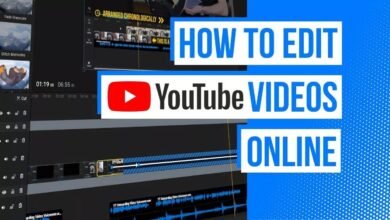Social Media Influencer Engaging Audiences, Shaping Trends and Building Brands

Social media influencing affecting has reshaped how brands associate with consumers, how individuals see items, and even the way in which people characterize themselves in the advanced space. Defined broadly, social media influencing involves individuals—known as influencers—who have built a dedicated audience on social platforms and use their reach to impact the views, beliefs, and buying behaviors of others. This 800-word article delves into the concept of social media influencing, its relevance, and the top seven aspects that make it an impactful force in today’s online world.
1. The Rise of Social Media Influencers
Social media influencers emerged arose as advanced stages acquired conspicuousness, especially stages like Instagram, YouTube, and TikTok. With millions going through hours looking over, watching, and connecting on these stages, influencers gained an opportunity to reach audiences that traditional marketing channels could not. By building personal brands based on their knowledge, personality, or lifestyle, influencers can attract audiences who see them as authentic and relatable, making them especially impactful for marketing and advocacy efforts.
2. The Power of Authenticity
One of the greatest allures of web-based entertainment forces to be reckoned with is their apparent legitimacy. In contrast to conventional promotions, powerhouse showcasing frequently feels more veritable and engaging. Powerhouses share looks at their regular day to day existences, causing adherents to feel like they’re drawing in with genuine individuals as opposed to cleaned showcasing efforts. This authenticity is powerful, as 71% of social media users say they are more likely to buy products based on social media recommendations. Trust in influencers allows them to sway opinions, which has led to brands increasingly leveraging influencers to market their products.
3. Influence on Consumer Behavior
Web-based entertainment affects shopper conduct. Almost 54% of clients utilize social stages to explore items and administrations, with powerhouses frequently assuming a part in directing choices. Many brands team up with powerhouses to make limited time content that flawlessly coordinates into a powerhouse’s feed. Whether exploring excellence items, displaying the most recent tech, or sharing health tips, influencers provide a convenient and appealing way for consumers to discover new products and make informed decisions.
4. Building Communities Around Interests
Influencers to be reckoned with frequently assemble networks around unambiguous interests, whether it be wellness, style, tech, or wellbeing. These specialty networks permit powerhouses to target crowds with comparative interests, giving them a remarkable and steadfast following. These communities foster a sense of belonging, where followers interact with each other, share experiences, and discuss product recommendations. This powerful community dynamic leads to higher engagement rates and stronger relationships between the influencer and their followers, making influencers valuable partners for brands looking to reach targeted audiences.
5. The Economic Impact of Social Media Influencing
Social media influencing impacting has turned into a roaring industry in itself. With powerhouses being made up for associations, supported posts, and in any event, making their product offerings, the financial effect is significant. For instance, some influencers earn thousands of dollars for a single post or video featuring a brand. According to recent data, over 90% of marketers use social media for advertising purposes, a trend that has given rise to multi-million-dollar deals for top influencers. The role of influencers is increasingly professionalized, with agencies dedicated to connecting brands with influencers, thus driving the industry’s growth.
6. Mental Health Implications
Regardless of its up-sides, social media influencing affecting has likewise affected psychological well-being, both for powerhouses and their adherents. The consistent strain to keep an ideal picture can prompt pressure, uneasiness, and burnout among forces to be social media influencing For supporters, nonstop openness to organized content frequently advances unreasonable magnificence principles and ways of life, which can hurt confidence and emotional well-being. While some influencers use their platforms to promote mental wellness and self-acceptance, there is still much work to be done to counteract the potential downsides of the influencer industry.
Conclusion
Social media influencing impacting has turned into a foundation of digital marketing, essentially influencing buyer conduct and individual character in the web-based world. Its power lies in its capacity to associate with crowds legitimately, cultivating networks around shared interests, and connecting brands with possible clients. Despite its advantages, it also has drawbacks, particularly concerning mental health. As the influencer economy continues to grow, brands and influencers alike must balance authenticity with the responsibility of positive impact. As we look to the future, social media influencing will likely continue to evolve, playing an even more significant role in shaping digital interactions, commerce, and culture.


